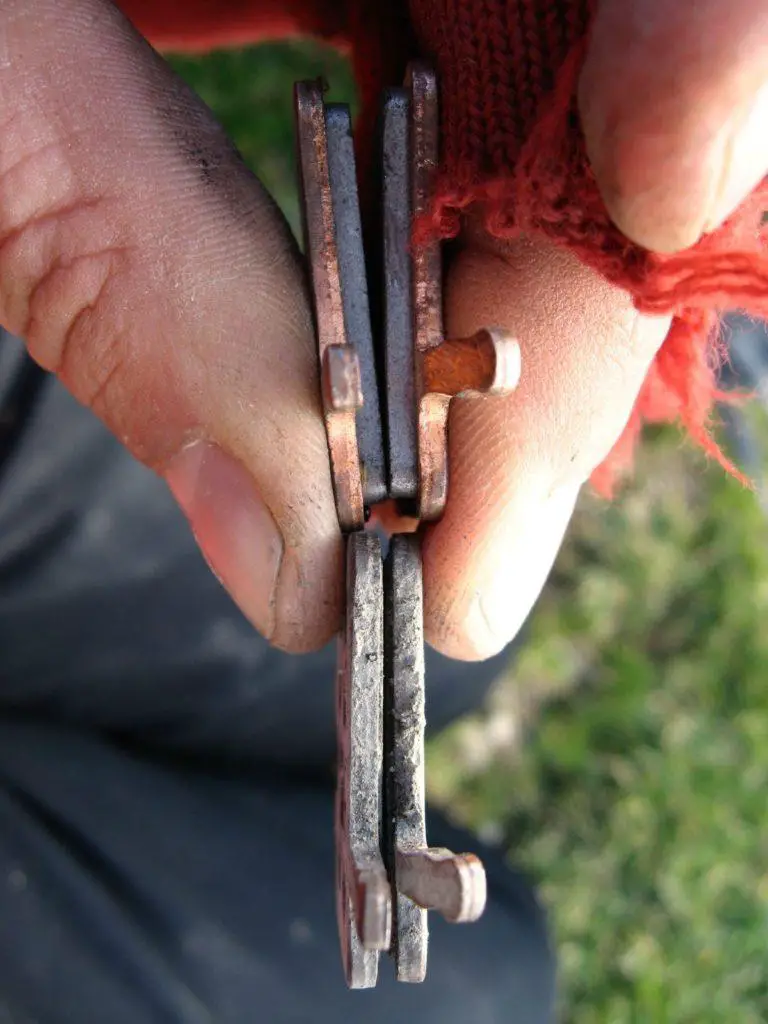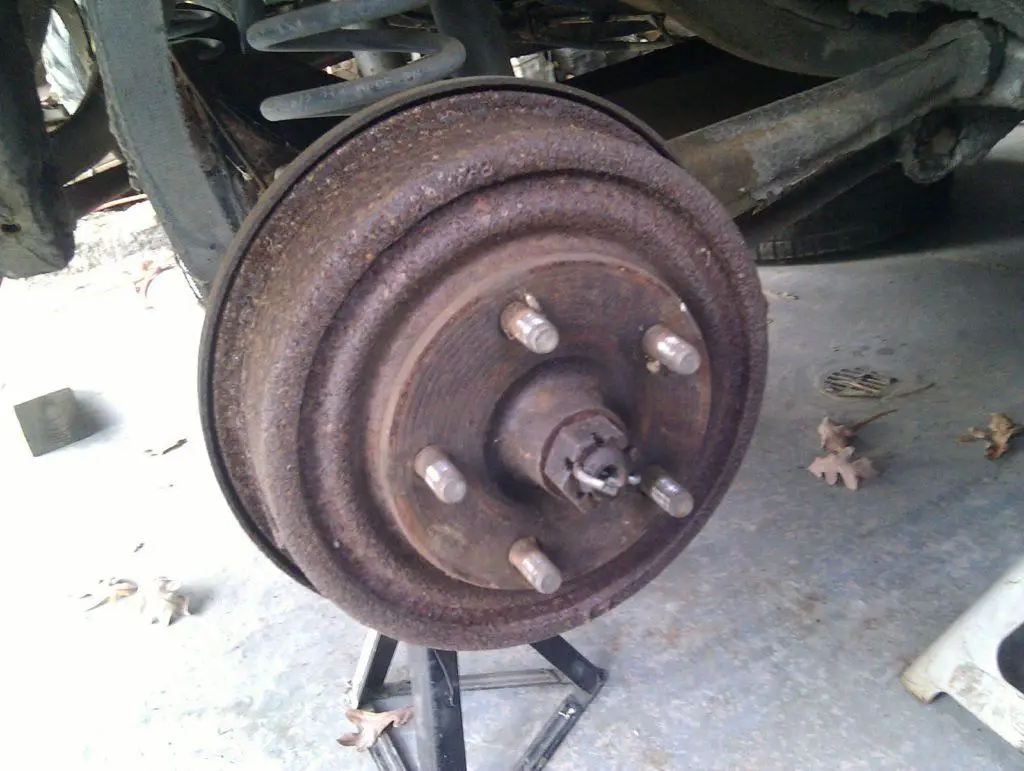Every vehicle owner, at some point, has been startled or annoyed by the unexpected sound of squeaking brakes. Whether you’re pulling up to a stop sign on a quiet morning or coming to a halt in heavy traffic, that unmistakable sound can immediately raise concerns about safety and vehicle maintenance. And while cars are marvels of modern engineering, designed to operate smoothly with myriad moving parts, they aren’t immune to the occasional orchestra of groans, rattles, and, most notably, squeaky brakes.
One of the more common inquiries that auto mechanics and experts hear is: “why do brakes squeak?” This question, born out of the concern of countless drivers, isn’t just about the irritation of the sound; it’s deeply rooted in understanding the health and functionality of one’s vehicle. It’s no surprise that the health of the braking system is paramount for every driver, given its direct role in ensuring safety on the roads.
The answer to the squeaking dilemma isn’t singular. Squeaky brakes happen for a variety of reasons, and the sound can be a manifestation of various factors. Common causes include the natural wear and tear of worn brake pads, the presence of dust and debris between the pads and rotors, or the lack of lubrication on certain brake parts. Furthermore, environmental conditions such as humidity, temperature, and even the materials from which the brake components are made can contribute to the characteristic squeal. Knowing these reasons not only quells our concerns but also provides insights on when to seek professional help for our vehicles.
Whatever the cause, you should not ignore issues with your vehicle’s braking system. Your squeaky brakes are a sign that they need to be checked by a mechanic.
Below are some reasons you have squeaky brakes when you press the brake pedal, and how you should address them.
8 Reasons Why You Have Brakes Squeaking
Brakes force a high friction material against a spinning metal surface, and the vibrations and inconsistencies generate noise. The noise shouldn’t be continual and uncomfortable during usual use, but occasionally things go wrong.
Here are some common reasons why brakes make a squeaking sound.
1. Worn Brake Pads
The brake pads have become too thin due to excessive wear. When you apply pressure to the brake pedal, the brake caliper will clamp around the brake pad and slow down the wheel.
This causes heat to be produced, which dissipates the kinetic energy that the car had produced while moving since friction was formed.

Flickr Image by Robert Thomson
The brake pad is being scraped off, little by little, each time the brake pedal is pressed. Your pads will progressively thin out eventually, and they ultimately need to be replaced.
Also, modern automobiles almost universally use disc brake pads with metal tabs that signal when they have used up 75% of their useful life of brake material.
The metal tabs drag on the discs when the brake pad material becomes worn. This is the most likely reason if your brakes begin to squeak or screech after 30-60,000 miles of regular use.
The tabs won’t harm the discs permanently, and your braking performance is unaffected.
2. Weather Conditions
Try to keep track of the times your brakes sound the loudest. The cold weather may bring on the squeaking.
While this could be inconvenient, there isn’t always much that can be done about it. At least knowing they are okay gives you peace of mind.
3. Glazing
When brake pads are glazed, they might make a squeaking noise. The brake pad can only be used partially if the brake’s calipers are stuck.
This generates an excessive amount of heat and friction, which can cause the brake pads to glaze or harden and crystallize.
When you press the brakes, glazed brake pads make a squeaky brake noise and have reduced stopping power. A professional who will sand the brake rotors and pads to remove the “glaze” and resolve the caliper problem can often rapidly fix glazed brakes.
4. High Metal Content of Brake Pads
Although bits of metal are typically present in brake pads, certain inexpensive brake pads are made with high metal content. The pad material has huge metal pieces pushed onto it. These heavy metal objects drag on the brake rotor and emit a loud brake screech from the brake pad.
You’ll have to endure this unpleasant sound for months because brake pads occasionally last between 30,000 and 40,000 miles. This is one reason to invest a little more in high-quality brake pads.
Of course, the fact that your brakes stop the automobile is another factor. Good quality brakes are crucial for safe driving experiences. Saving $20 is not worth an accident that can wind up costing you much more.
You can use brake pads with a high proportion of organic material to reduce squeaks from your brakes. However, although organic pads are the least expensive option, they also have poor quality and longevity and generate a lot of dust from the brake pad.
Ceramic brake pads are the third alternative and the best in terms of performance and quality. They are the quietest and most durable of the three, even though they are more expensive than their organic alternative.
5. Moisture
A thin film of rust develops on the brake rotor surface when moisture from the mist, dew, or nighttime rain builds up on the rotors.
The pads scratch the rust off the rotors as they rotate. When this rust ultimately embeds itself into the leading edge of the brake pads, it might cause you to have brakes squeaking.
It frequently happens in the morning when the brakes become squeaky due to moisture. However, the noise normally goes away after a short while when the brake pads have had a chance to adjust a little, or the thin layer of rust has worn off.
6. Dust Between Your Pads and Rotors
Mud, dust, or other material on the surface of your brake pads or rotors is usually another reason for brake screeching. This may occur under different driving circumstances or if your automobile sits for an extended time collecting dust.
In this situation, a short spray of cleaner or sanding of the surface material will solve the brake squeal issue.
After a few brake applications, it might also go away on its own because the physical contact between the brake pads and rotors removes the debris.
7. The Drum Brakes Aren’t Lubricated Properly

Flickr Image by Nathanael Burton
If your car has drum brakes, the screeching can be brought on by a lack of lubrication where the shoes and drum come into contact. Without lubrication, a squealing sound is produced as the shoes begin to rub on the backing plate.
When the bare metal is revealed, check for signs of this type of scraping to determine where the problem is. Applying brake grease to the backing plate where the piston contacts the shoes is a simple way to fix or prevent brake noises on drum brakes.
8. New Car
When you purchase a new vehicle, you may discover that the brakes squeal. Do not be concerned; you do not immediately need to replace them. They probably simply need some time.
The bedding-in procedure is a tricky method of removing the transfer layer on new brake pads, which may be the source of the squealing brakes in a new car.
It can be tricky as it often involves accelerating to around 60 mph and slamming on the brakes until you’ve reached about 10 mph. This should then be done eight to ten times in total. By doing this, the transfer layer on the pads is entirely worn down, which could help avoid braking problems in the future.
To prevent an accident, be sure to do it in a secure area and when the roads are empty.
How To Fix the Brakes Squeaking?
There are numerous ways to stop brake squeaking, from simple fixes to complete replacements.
You may need to oil the contact points if your brakes were recently installed or if your car is brand new. You must first take the brake pads off of the caliper.
After that, lubricate the caliper carrier’s numerous contract points and the backs of the pads. Keep in mind that getting grease on the surface of the rotors or the pads could impair their performance.
Brake pads may occasionally rattle if they are not firmly fastened. You should install a set of shims. It will help reduce vibrations, which should stop the squeaking noise.
The squeaking may have started because you decided to use a cheap brake pad in the past.
A mechanic might advise using more expensive, higher-quality metallic pads for improved braking performance and reduced noise.
It’s usually time to replace your brake pads and rotors after they have withstood many miles of regular use and won’t quit squeaking. You might hear a harsh metal-on-metal grinding sound when you try to stop at that point.
It may be simpler to determine if brake pads or rotors need to be replaced than other potential causes. In this case, visiting a repair shop is the easiest and best option before you have a brake failure after hearing a squeaking or squealing noise.
Conclusion on why do brakes squeak
In summary, the solution to your vehicle’s brake noises depends on the cause.
Although there are several products that you may buy from your neighborhood mechanic shop that promise to stop squeaky brakes, it is best to have your brakes examined by a skilled technician. There are numerous reasons why your brakes could be squeaking.
By doing this, you can be confident that you won’t endanger your safety by misdiagnosing the issue and operating potentially dangerous brakes after hearing brake squeal.


2 thoughts on “Why Do Brakes Squeak? Learn the 8 Reasons”
Comments are closed.